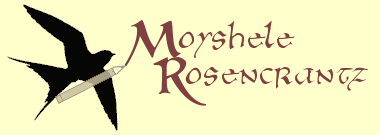An interview recorded by my cousin, which I then transcribed and translated from Hebrew
Lova: My grandfather on my mother’s side, Shmuel Mevzos, was one of the richest men in the town of Mariampol, in Lithuania. Apart from an ambition to get rich, he had an even greater weakness with respect to Torah and to lineage. He had seven children. Two boys and five girls. So whenever the time came to marry off one of his daughters, he would drive to famous yeshives and choose talented yeshive-boys with a good lineage.
 |
| Vilkovishk Synagogue, 1926, photo by Balys Buracas |
That’s how he married off my mother. My father was an excellent student at a yeshive and already had his rabbi’s certificate. What’s more, he was one of the descendants of the great genius rabbi Mordekhai Jaffe, may he rest in peace, also known as “ba’al ha levoushim”1. After my parents got married, grandpa wanted my father to become a rabbi in Marijampole. He was very disappointed when my father decided to become a businessman instead. Grandpa opened a candy and chocolate factory for him in Vilkovishk, a small town in Lithuania. That’s where I was born in 1905, on the evening of Tish'ah b'Av2.
At the same time, my father began getting interested in all kinds of studies, and in science. When he already had two children in the house, he earned his matriculation certificate. Which wasn’t such an easy thing for a Jew, in the times of the Russian Tsar Nikolai.
  |
| Lova's parents: Chana Mevzos and Yoseph Yehoshua Rabinovitch |
His business was going well, and he left Lithuania to move to Saratov, a large city on the banks of the Volga. In those days, only rich Jews were allowed to live in Russia, beyond the Pale of Jewish Settlement. He opened another candy and chocolate factory there and got rich. And even though he absorbed a lot of foreign culture, he remained a pious Jew and a strong Zionist.
From my earliest childhood, I absorbed a great love for the distant land of Israel. As far back as I can remember, I always dreamed of going there. When I was a little boy, I imagined that toys and all kinds of wonderful things grew on the trees there. Or maybe that was from my cousin’s stories. Maybe.
 |
| Vilkovishk, Lithuania |
I was a member of a Zionist children’s club called “Children of Zion”. Then, when I grew older, I joined a youth movement, the “Young Zionists”. I was fifteen or sixteen years old. We would gather together in the synagogue, upstairs, in the section normally reserved for women. Among us were children from Poland, Lithuania and Latvia, following the war of 1914-1918. We learned a little bit of Hebrew, and the geography of the land of Israel, and literature, poetry, and short plays. We stayed in this movement until 1920 or 21 at the latest, and then some of the members joined the “Pioneer” and immigrated to Israel, and wanted to settle near Degania A or B, but there was no land available. So they finally settled in Ginegar.
After the revolution, our life changed completely. The government confiscated our factory, and we were left with nothing at all. My father died in 1921. When I finished high school, I entered the Physics and Mathematics Department in the university. But to all of our great disappointment, meaning me, my brothers, and my older sister, they decided one day to kick us out of the university, even though we were good students, because of the great sin that we were the sons and daughters of a bourgeois, rather than a proletarian.
So then I decided to leave Russia forever, and somehow or another to get to Israel. To leave Russia legally was impossible. So I decided to steal the border over the Caucasus Mountains to Turkey, and to continue until I got there.
In August 1927 I said my farewells to my family, and left Astrakhan by ship, heading towards the Caucasus Mountains. I reached Baku, and straight away set about looking for work, and also asking about the best way to get to Turkey. At the end I decided to drive to Georgia, to Tbilisi, Borjomi, and Akhaltsikhe.
 |
| Lova's itinerary through the Russia, 1905 to 1927 |
Continued in part 2...
1 "ba'al ha levoushim" or “master of
clothing”, after his religious and moral books which he called the
“Levoushim” meaning the “clothing”
2 an annual fast commemorating the destruction of the temple in Jerusalem


No comments:
Post a Comment